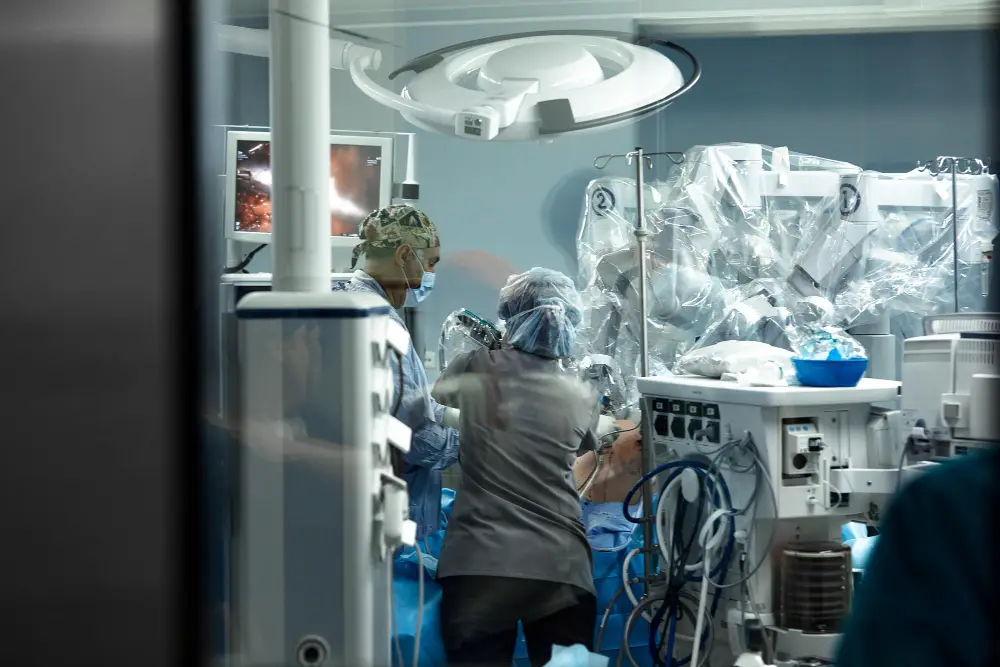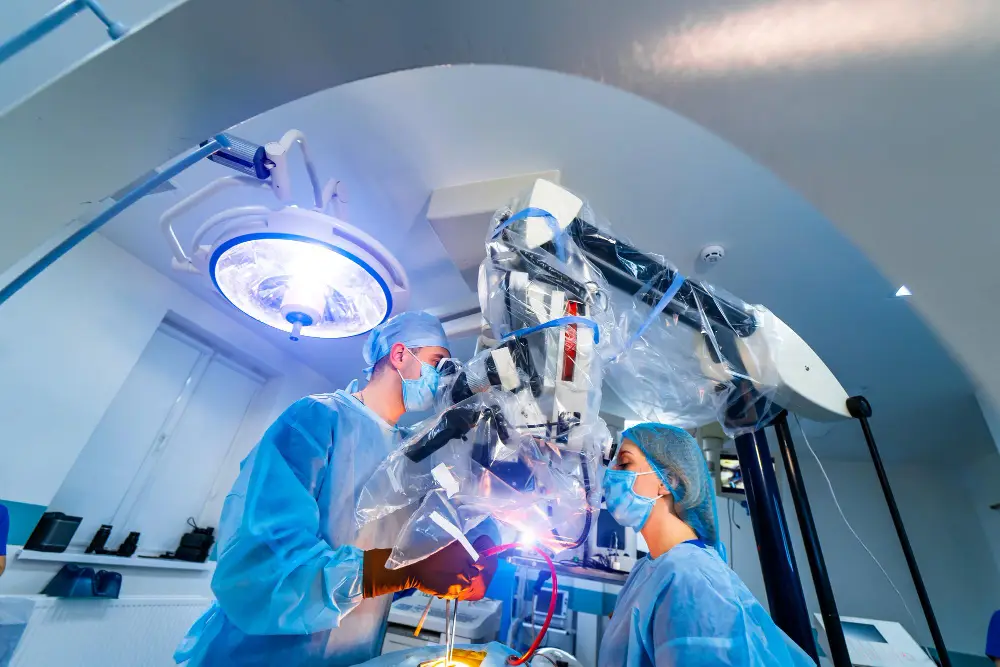Robotic surgery in Thailand
Thailand Embraces Robotic Surgery: Precision and Innovation in the Operating Room
Thailand has emerged as a significant player in Southeast Asia's adoption of robotic surgery. This cutting-edge technology is transforming surgical procedures across various specialties, offering patients the benefits of minimally invasive techniques, enhanced precision, and improved outcomes.
_1725689689.jpeg)
What is Robotic Surgery?
Robotic surgery doesn't mean the robot is performing the surgery on its own. Instead, it involves a highly skilled surgeon controlling the precise movements of robotic arms and instruments through a console. This system allows for intricate maneuvers within small incisions, enhanced 3D visualization, and greater dexterity – offering benefits for both surgeon and patient.
Robotic Surgery Growth in Thailand
Thailand's most advanced hospitals and medical centers are investing in robotic surgery systems, primarily the da Vinci Surgical System. This growth aligns with Thailand's established medical tourism industry and its reputation for offering high-quality healthcare.
Specialties Utilizing Robotic Surgery
Thailand is employing robotic surgery in a wide array of specialties, including:
- Urology: Prostate cancer surgery is a leading application, but robotic techniques are also used for kidney and bladder procedures.
- Gynecology: Complex hysterectomies and other gynecologic surgeries can be performed with robotic assistance.
- General Surgery: Robotic approaches facilitate gallbladder removal, hernia repair, and various abdominal procedures.
- Thoracic Surgery: Lung and esophageal surgeries are benefiting from robotic precision.
- Colorectal Surgery: Surgical interventions for colon and rectal cancers can be performed with advanced robotic techniques. Benefits of Robotic Surgery
Patients in Thailand are increasingly seeking robotic surgery due to potential advantages like:
- Smaller incisions: Reduced scarring and faster recovery times.
- Reduced blood loss: Minimizing the need for transfusions.
- Shorter hospital stays: Allowing patients to return home sooner.
- Enhanced precision: Robotic systems allow for increased accuracy and dexterity.
- Reduced risk of complications: Potential for fewer post-operative complications.
Training and Expertise
The success of robotic surgery in Thailand relies on surgeons with highly specialized training in these techniques. Leading hospitals offer dedicated training programs to equip surgeons with the skills needed to perform robotic procedures effectively.
The Future of Robotic Surgery in Thailand
Robotic surgery is set for continued growth and innovation in Thailand. Here's what to expect:
Expanded applications: More specialties will likely adopt robotic surgery.
Research and Development: Thailand may become a hub for research in new robotic surgery advancements.
Accessibility: While currently focused in major centers, robotic surgery may gradually become more accessible across the country.
Important Considerations
While promising, robotic surgery may not be the ideal choice for everyone. It's crucial to discuss potential risks, benefits, and alternative options with your surgeon.
Finding a Robotic Surgeon in Thailand
If considering robotic surgery in Thailand, research hospitals known for their robotic programs and search for surgeons specializing in your specific condition. Seek credible resources like hospital websites or the Thai Medical Council.
Disclaimer: This article is for informational purposes only and should not replace medical advice.
Consult a qualified surgeon in Thailand to determine if robotic surgery is appropriate for your individual needs.



